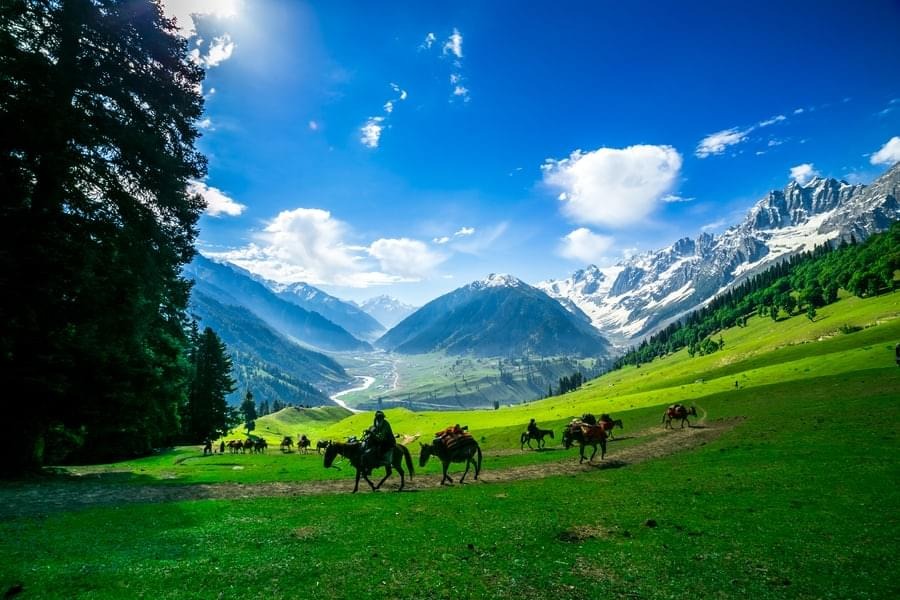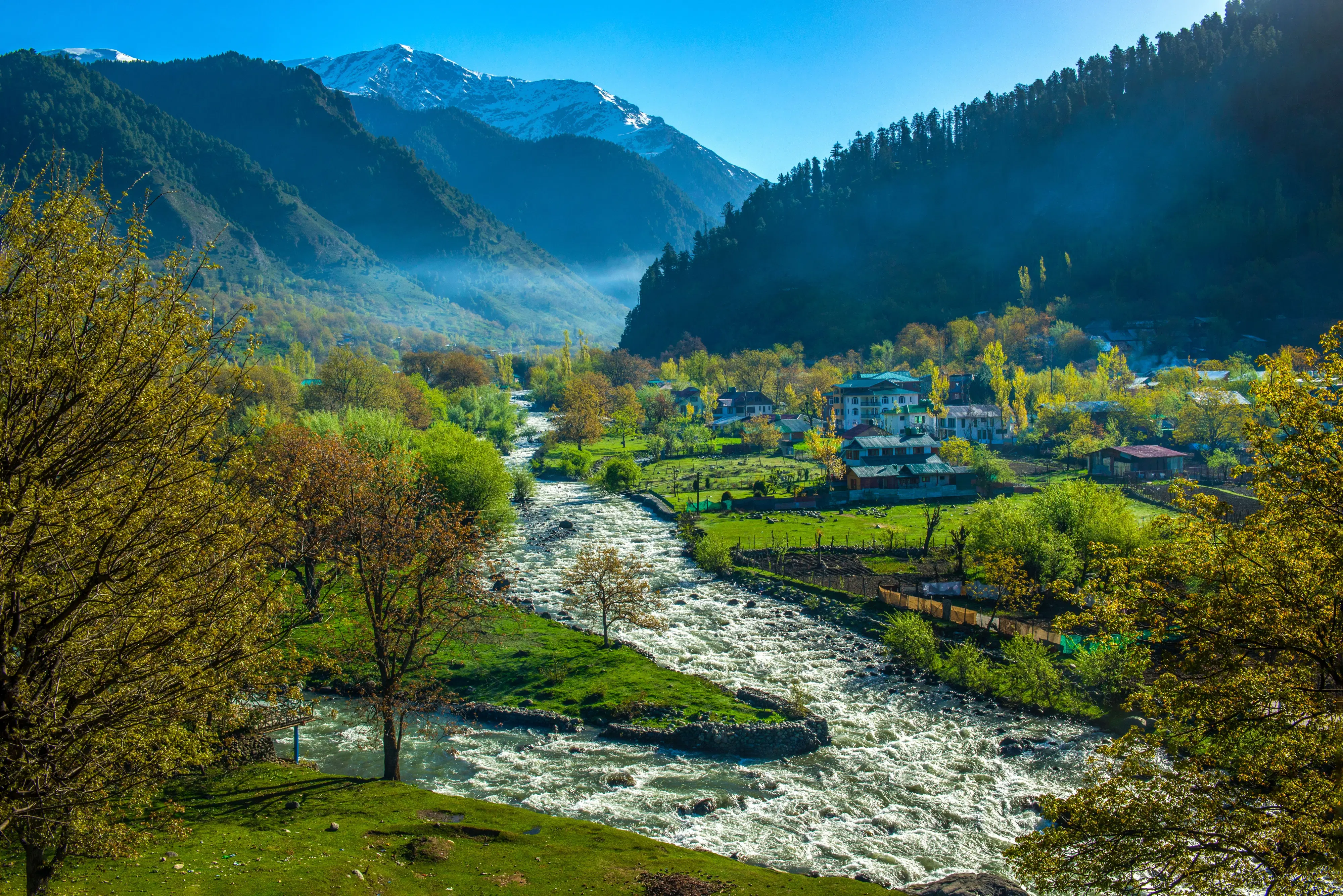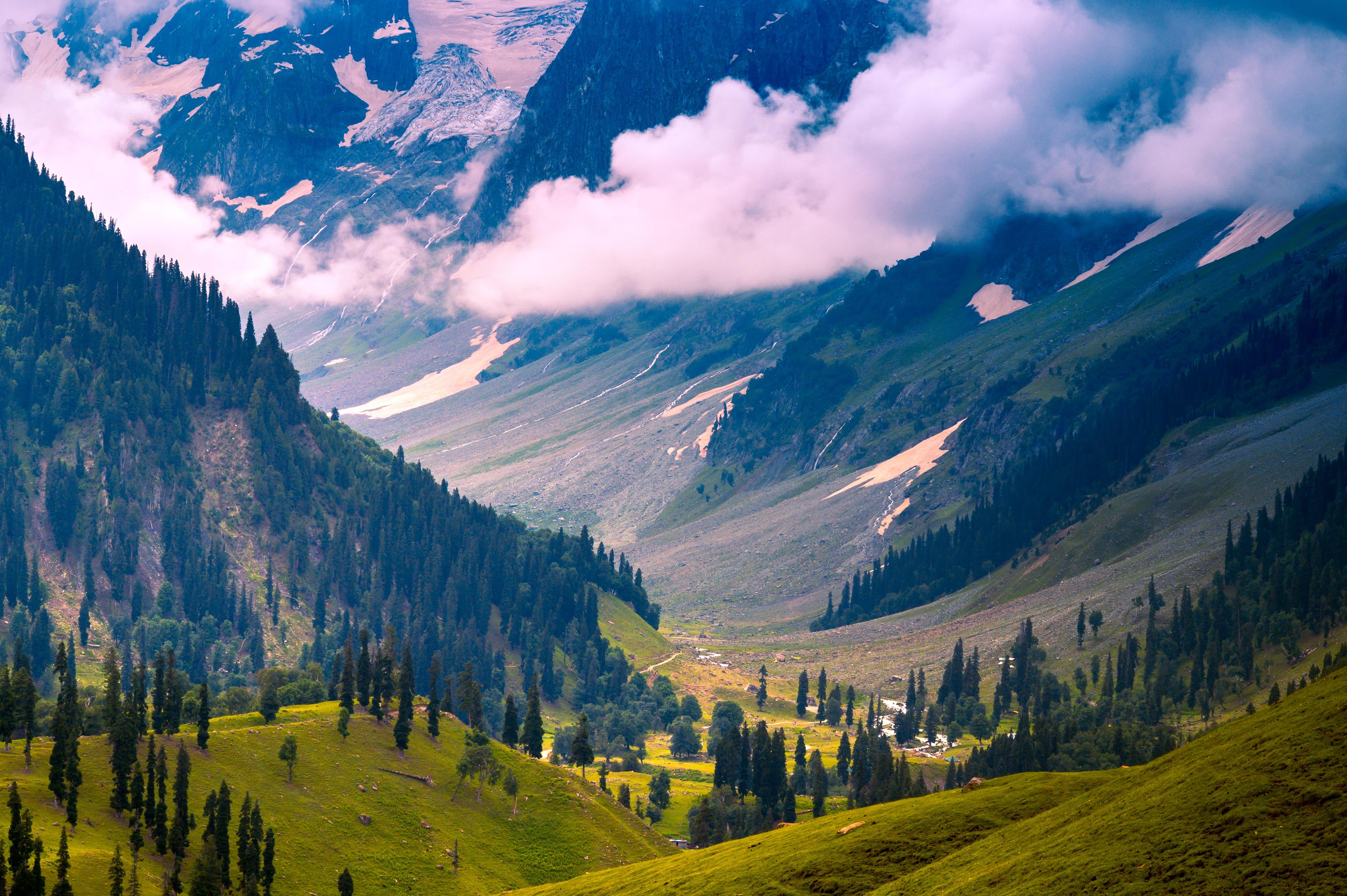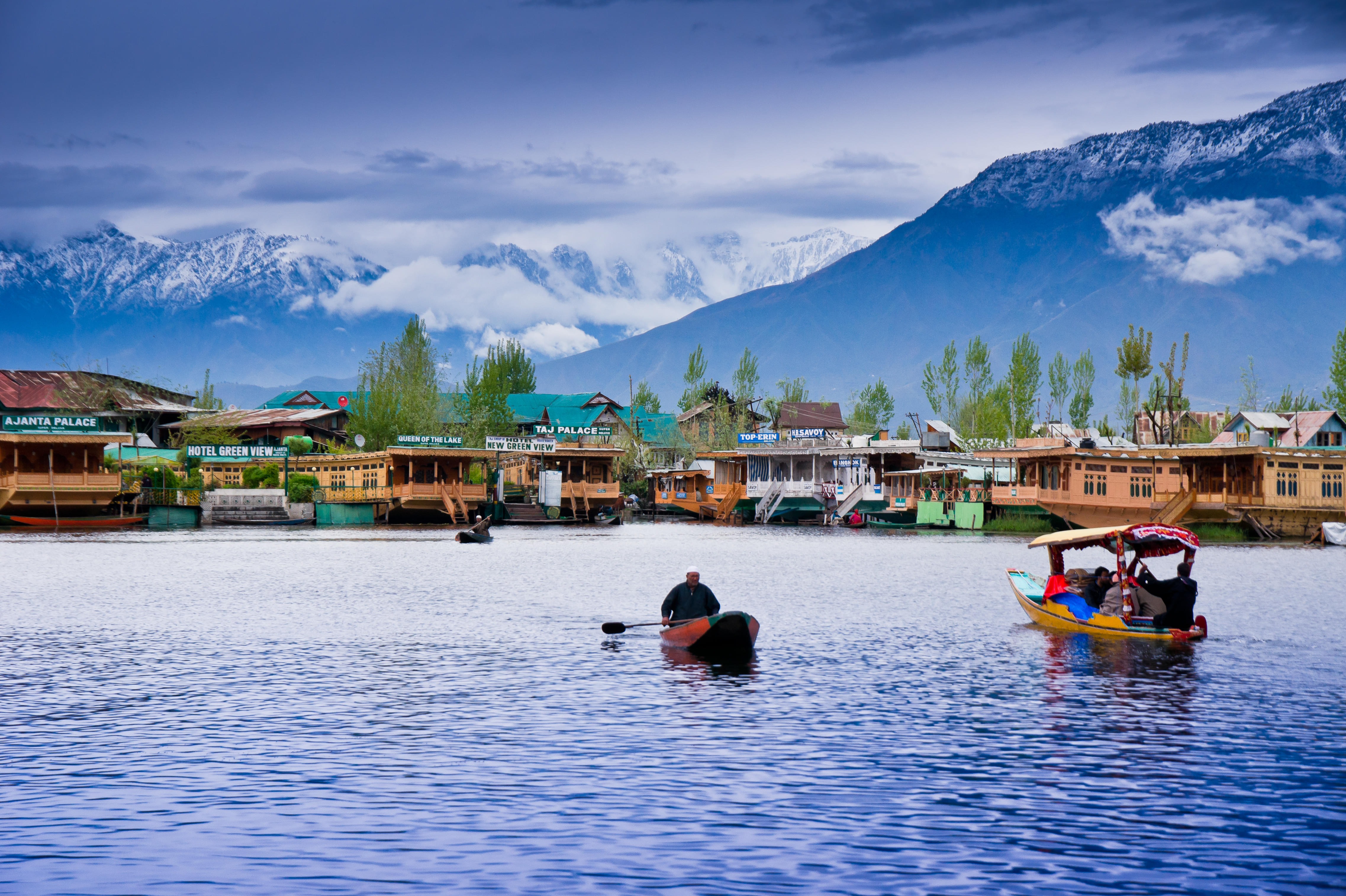Where Valleys Whispered Courage: Debarchan’s Journey Through Kashmir

They had first planned the Kashmir trip in January. The itinerary looked good to go, the tickets half-booked, and the excitement almost tangible. But as happens too often, life intervened…
Work piled up, priorities shifted, and the dream of visiting the “heaven on earth” was postponed.
Then came the tragic Pahalgam attack. The news was everywhere- the mountains mourned in silence while the nation held its breath. The family, sitting far away, watched the coverage with heavy hearts.
Most would have erased Kashmir from their travel list forever. But one evening, as silence wrapped the dinner table, the father said quietly,
“If we stop going, we surrender to fear. Maybe what they need most right now is not sympathy, but solidarity.”
And so, in that spirit of courage and compassion, they decided to go ahead with their trip with Thrillophilia’s Kashmir tour packages- not to explore the valley as mere visitors, but as witnesses to hope. And thus, started a story of empathy, resilience, and rediscovering humanity in the heart of paradise.
Arrival, with a Silence that Spoke Louder Than Words
When their plane descended over Srinagar in October 2025, the valley unfolded like a painting. The Dal lake shimmered like glass and snow peaks glistened like prayer flags in the sun. The Chinar trees had begun to turn a shade of copper, and the air carried the crisp scent of autumn.
Their local guide, Tariq, greeted them at the airport with warmth that needed no translation.
“Welcome to paradise,” he said with quiet pride.
That evening, as they sat on the deck of their houseboat watching the Dal Lake reflect the orange glow of twilight, Debarchan’s mother whispered,
“The world talked about unrest… but look at this calm.”
Debarchan’s father smiled gently. “Peace is not the absence of pain. It’s the courage to keep living despite it.”
The lake rippled softly, as if in agreement.
Echoes of History and Heart
The following morning, they wandered through the Mughal Gardens, where fountains murmured verses from another era. Rows of flowers like tulips, dahlias, marigolds danced in the soft wind, as if nothing could ever wilt here.
As they were strolling by the banks of the lakes, they met an elderly boatman. His face carried stories carved by time. When asked how life continued after such difficult years, he said simply,
“Like water, madam. Sometimes still, sometimes stormy, but always moving forward.”
The family fell silent. Those words weren’t just wisdom; they were the philosophy of an entire people.

Pahalgam- The Heart Still Remembers
Their journey to Gulmarg was a dream dipped in green and yellow. Children played cricket in open fields, ponies jingled with bells, and the contagious laughs of Debarchan’s family filled the mountain air. Taking the cable car upwards to the Apharwat Peak, they rose into clouds that veiled and revealed the valley like a well-known secret.
At the top, the mother looked around, eyes wide with wonder.
“Why do people fight over a place so beautiful?” she asked softly.
The wind blew cold but kind, brushing their faces as if whispering an answer, one of forgiveness.
As the car approached Pahalgam, the mood changed. The father turned silent, and even Tariq’s voice grew softer. The valley, though stunning, carried an invisible weight, a quiet and heavy remembrance of what had been lost months ago.
When they arrived, they found not despair, but dignity. Locals waved and invited them for tea. Under a Chinar tree glowing gold, they sat sipping Kahwa from small cups, speaking not of tragedy but of resilience.
One man smiled and said, “We’re happy you came. We don’t want pity; we want people to see we’re still here, still smiling.”
Debarchan’s father looked at the mountains beyond, he knew in his heart that this wasn’t just another trip, it was a tribute to the place. For a moment, the valley and the visitors shared the same silence, one that healed way more than words ever could.
The Return — Where Humanity Blooms Again
Driving back toward Srinagar, the family noticed what they hadn’t before — women drying saffron on terraces, men picking apples from orchards, children waving at tourists’ cars. Life, in all its ordinary beauty, was blooming again.
That night, over a warm dinner by the Dal Lake, Debarchan’s mother said,
“Everyone warned us not to come. But maybe this is exactly where we were meant to be, to remember that strength isn’t loud, it’s lived and felt in every inch of our bones.”
The hotel staff, ever-smiling, served them with care. Every small act- a refill of tea, a folded napkin- or asking for water- felt like an offering of peace.

The Golden Meadow of Sonmarg
In Sonmarg, they found themselves surrounded by snow that glowed under sunlight like a promise well-kept. Children laughed, throwing snowballs, while elders warmed their hands by roadside fires.
“People here smile with their souls,” said Debarchan. His mother nodded, “Because they know what it means to lose peace, and what it costs to keep it.”
The family built a small snowman that day, not as play, but as a symbol of the warmth they found amidst the cold.
The Salute at Zojila
At Zojila Pass, the wind grew sharper, carrying with it the echo of courage. When they reached the Kargil War Memorial, they stood before the tricolor, fluttering high against the blue sky.
Each name carved in stone was once a heartbeat that belonged to this nation. The father’s eyes welled up, and he saluted quietly. A young soldier stationed nearby smiled and said,
“It’s people like you visiting that keeps us going, sir. You remind us what we protect, not land, but humanity.”
For a moment, time stood still. The family realised that patriotism wasn’t about distance from danger, it was about closeness to compassion.

Farewell, But Not Goodbye
On their last morning, as they packed to leave, Tariq met them with his usual gentle smile.
“Tell people not to fear Kashmir,” he said. “We are still Kashmir, beautiful, brave, and waiting.”
As the plane rose above the valley, the rivers below shimmered like threads of silver, winding through the folds of memory. The father wrote in his notebook:
“We came with questions, and left with faith.
The land is scarred, yet serene.
The people, wounded, yet welcoming.
This was not just a trip, it was a lesson in love.”
Read More: Thrillophilia Kashmir Reviews